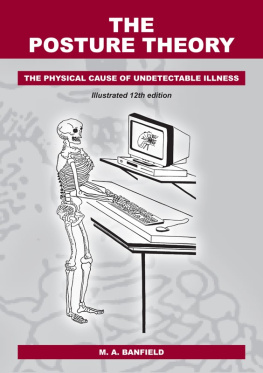For images/tables/appendix : see the pdf
Made to be improved!
The Moral Basis
of a. Backward Society
By EDWARD C. BANFIELD
WITH THE ASSISTANCE OF LAURA FASANO BANFIELD
In such condition, there is no place for industry;
because the fruit thereof is uncertain: and consequently
no culture of the earth; no navigation, nor use of the
commodities that may be imported by sea; no commodi
ous building; no instruments of moving, and removing,
such things as require much force; no knowledge of the
face of the earth; no account of time; no arts; no letters;
no society; and which is worst of all, continual fear, and
danger of violent death; and the life of man, solitary,
poor, nasty, brutish, and short.
Hobbes
Introduction
In democratic countries the science of
association is the mother of science; the
progres s of all the rest depends upon the
progress it has made,
-- Tocqueville
Most of the people of the world live and die without ever achiev
ing membership in a community larger than the family or tribe .
Except in Europe and America, the concerting of behavior in political
associations and corporate organization is a rare and recent thing,
Lack of such association is a very important limiting factor in
the way of economic development in most of the world. Except as
people can create and maintain corporate organization, they cannot
have a modern economy. To put the matter positively: the higher the
level of living to be attained, the greater the need for organization.
Inability to maintain organization is also a barrier to political
progress. Successful self-government depends, among other things,
upon the possibility of concerting the behavior of large numbers of
people in matters of public concern. The same factors that stand in
the way of effective association for economic ends stand in the way of
association for political ones too, "The most democratic country on
the face of the earth", Tocqueville observed, "is that in which men
have, in our time, carried to the highest perfection the art of pursuing in common the object of their common desires and have applied this new science to the greatest number of purpose. 1
We are apt to take it for granted that economic and political
associations will quickly arise wherever technical conditions and natural resources permit, If the state of the technical arts is such that large gains are possible by concerting the activity of many people,
capital and organizing skill will appear from somewhere, and organizations will spring up and grow. This is the comfortable assumption that is often made.
The assumption is wrong because it overlooks the crucial importance of culture. People live and think in very different ways, and some of these ways are radically inconsistent with the requirements
of formal organization. One could not, for example, create a powerful organization in a place where everyone could satisfy his aspirations by reaching out his hand to the nearest coconut. Nor could one create a powerful organization in a place where no one would accept
orders or direction.
There is some reason to doubt that the non-Western cultures
of the world will prove capable of creating and maintaining the high
degree of organization without which a modern economy and a democratic political order are impossible. There seems to be only one important culture--the Japanese--which is both radically different
from our own and capable of maintaining the necessary degree of organization. If there is to be more than a superficial overlay of industrialization in China, India, and the other underdeveloped countries, their ethos must be such as to allow the establishment of corporate
forms of action.
The ability of a culture to maintain organization cannot meaningfully be measured simply in number or size of organizations. An organization may have many members and cover a large area and
yet do very little. In appraising the capacity of a culture to maintain
organization, it is necessary to consider not only numbers and size
of organizations but their efficiency, i.e., the rate at which they convert valued input to valued output, In doing this, one must ask how exacting are the purposes or values being served: obviously it is less
of a feat to be efficient in the attainment of a purpose which imposes
few demands than in the attainment of one which imposes many, That
a culture is able to maintain an effective military force, for example,
does not imply that it can succeed in the infinitely more difficult task
of creating an industrial society in which human values are preserved
and improved, If these most difficult and important purposes are
taken as the standard, it is even more difficult to see how most cultures of the non-Western world can attain a high level of organization unless they are changed drastically or potentialities now latent in them
Next page







